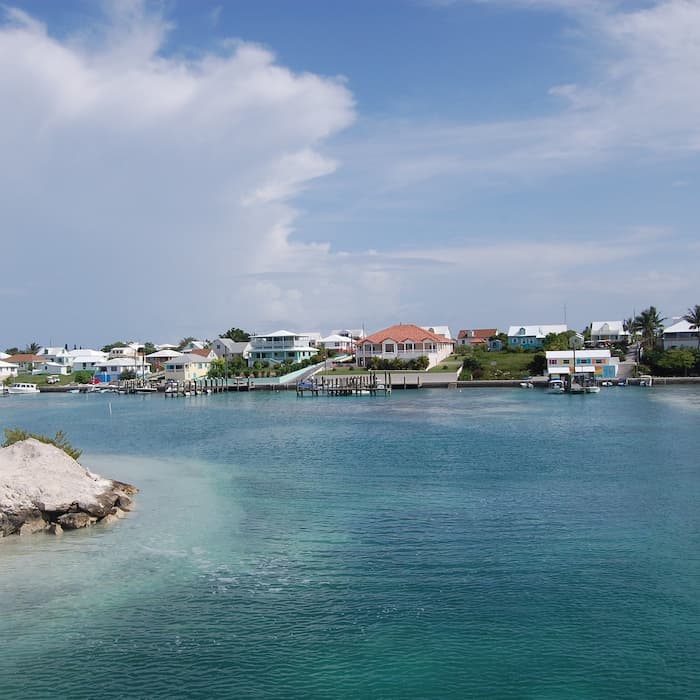Offshore
As UK, Canadian Taxes Rise, The Bahamas' Charms Increase

Capital is mobile, and offshore and other jurisdictions with relatively low tax rates – and other attractions – stand to benefit as countries such as the UK and Canada plan to squeeze HNW individuals. We talk to a firm operating in the Bahamas.
This news service has developed detailed coverage of the Bahamas as a financial center. (See examples here and here.) The jurisdiction has changed its fortunes, tightening up standards to be removed from various “gray lists” and reminded people of its value proposition. There can be no room for complacency, however.
With more onshore jurisdictions pursuing policies that can spell bad news for HNW individuals – such as residential non-domiciled persons in the UK – locations such as the Bahamas, with its link to the UK via the Commonwealth and history, are clearly in the frame as potential destinations. Taxes are also rising in Canada, such as on wealthier citizens. Capital gains taxes, for example, are slated to go up.
This news service recently interviewed Tim Rodland, founder, CEO and broker at Rodland Real Estate, based in the Bahamas. We asked where international tax and other developments are taking this jurisdiction.
What enquiries is the Bahamas getting from people in the
UK and Canada being affected by tax rises and the end of the
non-dom system?
We are seeing a significant amount of inquiries from people in
the UK and Canada being affected by these tax rises and the
non-dom systems. Many of these individuals are in the beginning
stages of looking for property so they are asking very top-level
questions about locations, offerings, etc. It’s still early on
for them to be divulging a ton of information, but the interest
is there.
How would an influx of people to the Bahamas affect the
real estate market?
Residents of the UK have approximately two years before the tax
takes effect, so the real estate market in the Bahamas likely
won’t see the direct effect of this just yet. However, Canada’s
new capital gains tax comes online on June 25, so if some people
haven’t considered purchasing property or moving abroad
yet, the pain from this year’s returns will certainly have a lot
of people thinking about sunnier weather and lower taxes in the
Bahamas.
Can you provide actual examples of what people need to
consider and why when it comes to acquiring property in the
Bahamas?
We recognize that one size does not fit all, particularly when it
comes to a property purchase, which even in the high net worth
bracket is the largest expenditure most people make. It’s still a
personal decision as much as it can be a business or investment
decision, so it’s crucial to understand the needs of the client
first before starting to make suggestions as to location or
property type. It’s important to understand their future plans,
if they have kids, the type of lifestyle they like, etc. Getting
to know people’s individual goals and lifestyles helps us curate
a selection of properties and communities that are a fit.
Who are the main advisors and firms that handle this in
the Bahamas?
In order to purchase property in the Bahamas, you’ll need a
lawyer who will act as your main point of contact for the
process. Once you own the property, the attorney will help you
apply for residency and point you to other agencies that help
move along the process.
When buying real estate to obtain residency, what
financial minimums and other requirements are applied? Have these
rules changed in recent years?
To obtain residency in the Bahamas you must purchase property for
$750,000. Previously, it was only $500,000, but it has increased
over the past five years. In fact, the threshold will increase to
$1 million starting January 2025. If an individual purchases
property for $1.5 million or more, the process to obtain
residency can be expedited.
Is there an issue with a supply/demand
imbalance?
The Bahamas does have limited supply, but there is a variety of
properties at various price points. With over 3,000 properties on
the market right now, buyers can find properties in various price
ranges, but it all depends on the lifestyle and investment goals
the client is looking for. We are seeing even more inventory
coming to market and like many other places around the world,
inventory is increasing, but so is demand – and that demand is
sustained. Another point to consider is that we have several
off-market/private listings particularly in the higher end
communities that we service that are not advertised to the
public, so there are often even more properties available than
people realize. It’s important to know the right broker to gain
access to these opportunities.
Can this cause problems for locals in terms of
affordability, which can be an issue with various "golden visa"
sort of programs around the world?
I’m a believer in free markets and I feel that new residents, new
developments, and overall growth in the Bahamas is good for our
economy. Locals are looking for work and if we can continue to
grow and scale the market effectively, the locals will
benefit.
How can applications be fast tracked?
Applications can be fast tracked by purchasing a property for
$1.5 million or more.
